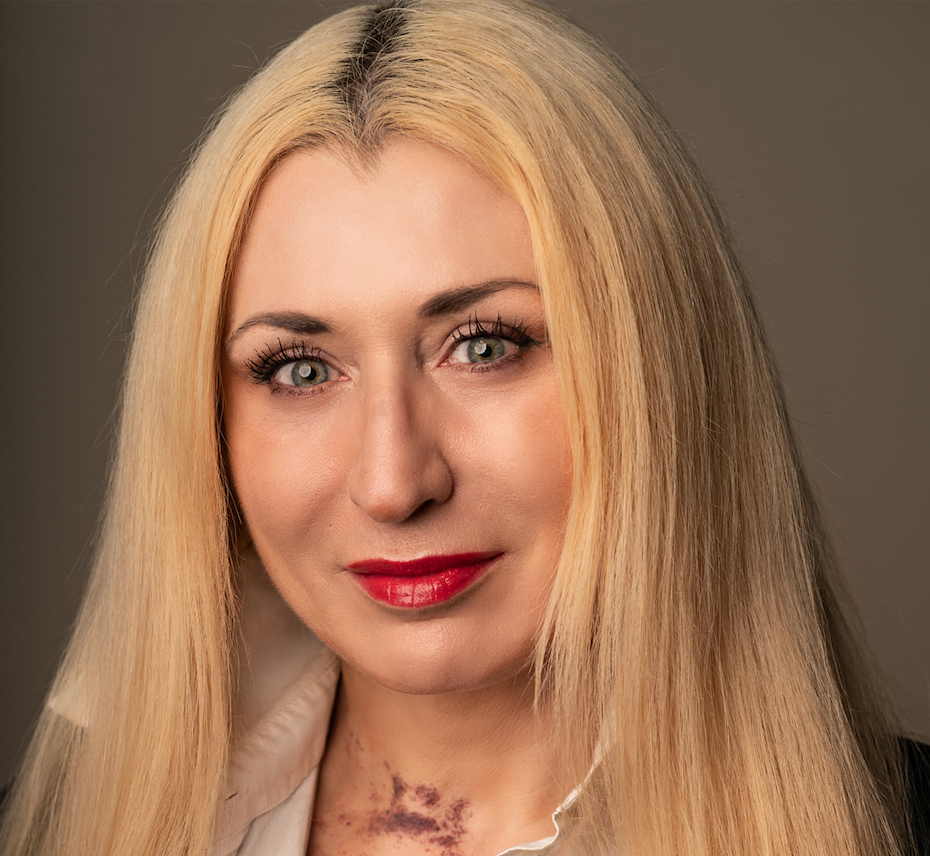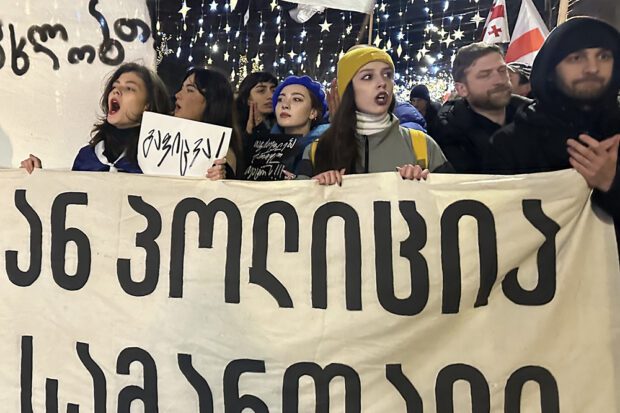
Russia’s aggression has destabilized regions, displaced millions and violated countless human rights, demonstrating that its actions are not only a regional crisis but also a global challenge. In 2025, Georgia, Ukraine and Moldova suffer under Russian imperial ambitions. These countries’ aspirations to join the European Union and NATO have provoked Russia’s aggression: an ongoing war in Ukraine, failed election fraud in Moldova and state capture that has led to months of daily protests in Georgia.
The history of confrontation between Russia and its neighbors spans centuries, marked by cycles of imperial expansion, resistance, Soviet control and post-Soviet conflicts.
The following report is from the ground in Georgia.
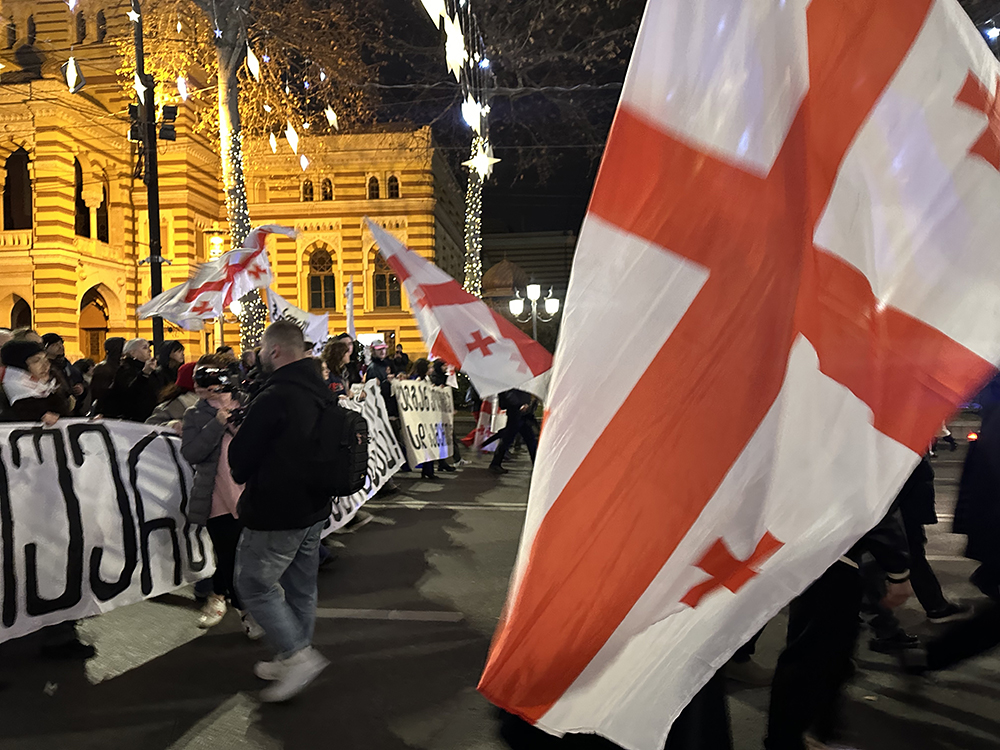
“Unfortunately, most people in the U.S. believe Georgia is just a state in their country,” said a 19-year-old political science student at a protest in Tbilisi. “It’s not. We have a long and rich history.”
“Georgia should not be defined by the relatively short period of Soviet rule,” said Alexander Kavtaradze, an Oxford-educated historian and lecturer at Ilia State University in Tbilisi. “The strategic and historical significance of Georgia and the Caucasus is unrecognized as Kremlin narratives dominate public information, placing Russia at the center of history.”
Georgia’s strategic location and rich past shed light on its current struggles. Known in antiquity as Colchis, the land of the Golden Fleece myth, and later as the Christian Kingdom of Iberia, Georgia has long been a crossroads of empires. It endured invasions and occupations by the Byzantine, Persian, Ottoman and Russian empires.
After a brief period of sovereignty (1918–1921), Georgia was incorporated into the Soviet Union. Despite Stalin’s Georgian ethnicity, his rule brought harsh repression.
After gaining independence in 1991, Georgia faced ethnic conflicts in Abkhazia and South Ossetia, fueled by Russian support for separatists and military intervention. These conflicts led to war, ethnic cleansing and the displacement of hundreds of thousands of Georgians. Russia occupies Abkhazia and South Ossetia to this day. A 2008 war with Russia further destabilized the country.
Despite these challenges, Georgia has pursued NATO and EU integration, aligning with Ukraine and Moldova in resisting Russian influence. Russian interference brought a pro-Kremlin government led by oligarch Bidzina Ivanishvili to power. His Georgian Dream party, reelected in elections widely seen as fraudulent, announced a halt to EU accession talks until 2028. Civil society responded with mass protests demanding fair elections.
The police suppressed peaceful demonstrations, arresting participants. Protesters added a second demand: freedom for political prisoners. The standoff has now lasted two months.
Protests
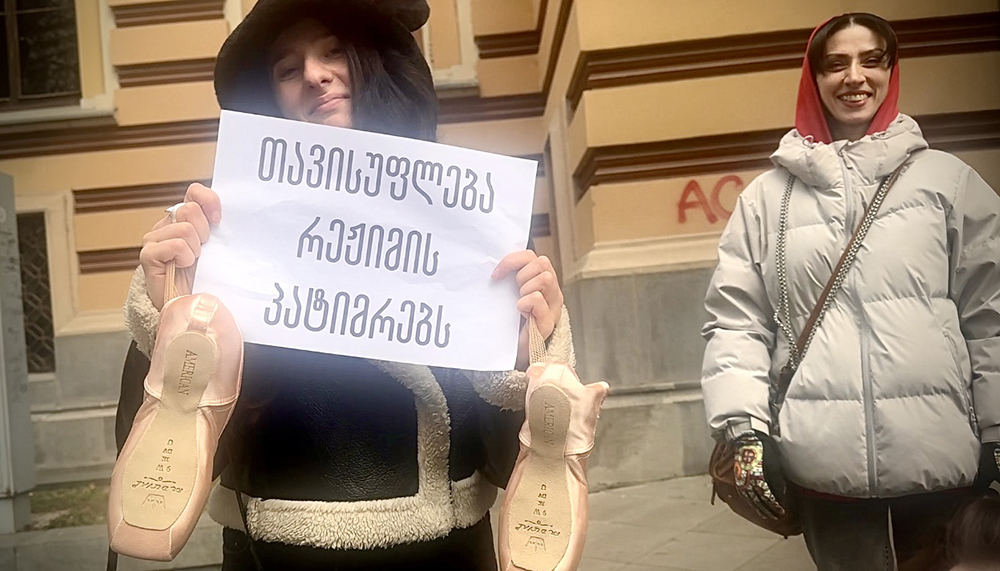
Protesters have found creative ways to resist peacefully. Nightly, hundreds to thousands gather in Tbilisi and regional centers.
One group protested outside the national public broadcaster in Tbilisi, demanding the resignation of its leadership and airtime to present their views.
“The channel was hijacked by government propaganda,” said Elena, one of the demonstrators. “They spread unspeakable lies.”
Another group gathers near Parliament, waving Georgian, EU, U.S. and Ukrainian flags, singing anthems and folk songs. Families bring children and dogs. The protests, grassroots and leaderless, draw participants from all walks of life.
“University students are demanding the release of a jailed friend, arrested by forces that no longer serve the Georgian people,” said Irakli Takalanadze, co-founder of the volunteer network Daitove. According to him, these protests reclaim the voice stolen during the elections. The protestors risk their lives and future to ensure fair elections happen in Georgia.
A period of brutal violence left many protesters injured, with several reporting being beaten. Facing global scrutiny, the government shifted tactics, refraining from interfering with rallies in the hope the movement would run out of breath and implode.
Nearly two months on, there are no signs of the resistance fading. Some nights are slower than others, but the people come to the streets despite the cold temperatures and harsh wind. Protests also prevail in other regions.

The movement stands out for its creative approach to resistance, with marches unfolding across the city in often unexpected ways. A Krab Coffee team of 10 might march down a side alley to join hundreds of Soviet repression victims’ families. Descendants of those executed or exiled during the Soviet era carry portraits of Stalin’s victims, chanting “No Russia!” Two groups then merge with a rally of theater students outside a school building plastered with the portraits of resistors arrested and tortured by the current pro-Russian government and occupied by a group of students.
World-famous Georgian opera singer Paata Burchuladze, who used to perform at Covent Garden and the Metropolitan Opera, stands next to the students in the streets near the Parliament building. “We will not be pulled back into the Soviet Union,” he says.
On Jan. 15, about 400 businesses in Georgia closed for a strike, the first since the 1990s. Real estate agents, ballet dancers, McDonald’s and art gallery staff, chocolate and honey makers, and HR managers closed their shops and offices and walked the streets for three hours. Despite the lack of trade unions and weak labor protections, businesses and workers alike joined forces.
“Organizing without trade unions is remarkable,” said Marika Mikiashvili of the oppositional Droa party. According to her, businesses were prioritizing long-term survival over short-term interests, and even workers in vulnerable positions were putting civic responsibility first. This strike exceeded expectations and could pave the way for a full general strike in the future.
“We want a European future,” said a young woman, an employee of McDonald’s, standing in front of the fast-food restaurant, against the picturesque hills in the background. “We don’t want a Russian future.”
While the protests continue to stay peaceful, some students explore the Ukrainian Maidan movement, a lengthy and violent confrontation in Kyiv that led to the Russian puppet Victor Yanukovich’s fall and escape to Russia but at the cost of many lives.
In December, Zviad Tsetskladze, 19, a law student and activist, was arrested on charges of organizing and leading group violence after posting a video with thinking points about Maidan on Facebook. Tsetskladze is now facing a 6–9 year prison sentence.
Ukraine-Georgia
“Maidan is what we need,” said another 19-year-old student, who’s been coming to the evening protests daily while still attending classes during the day.
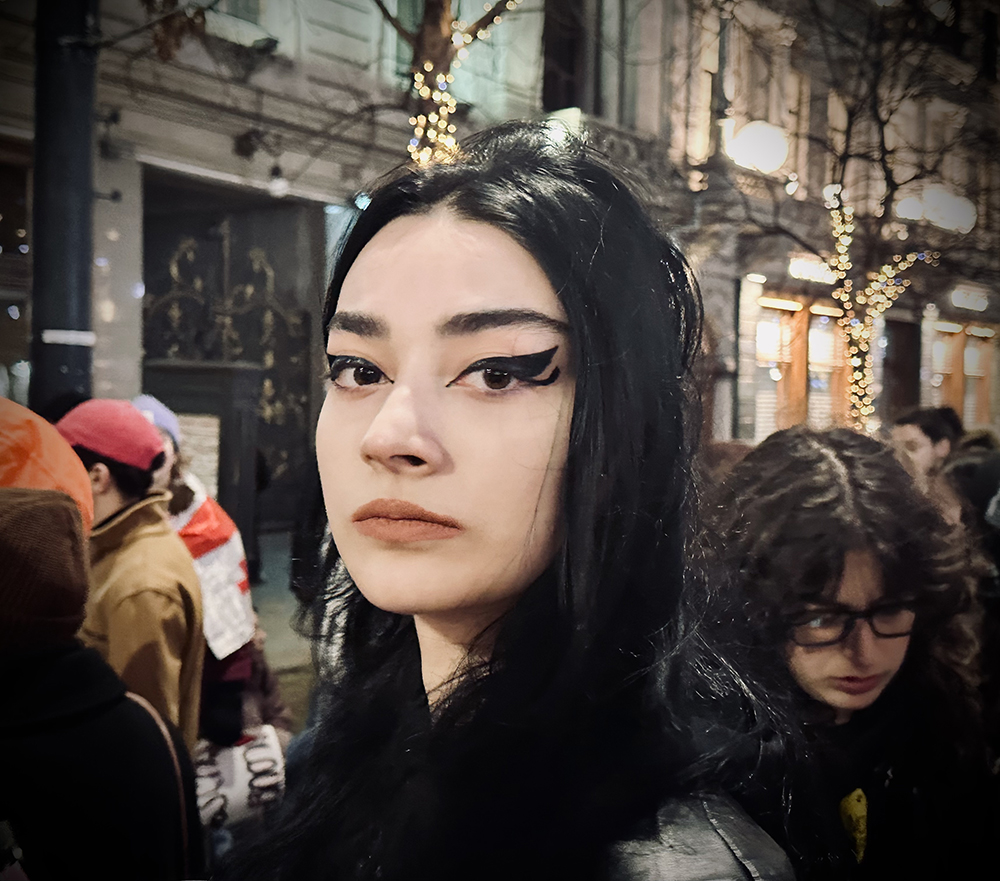
Whether Georgia will find its own way remains to be seen. As the two countries mirror each other’s struggle, Ukrainian and Georgian civil societies show solidarity in resisting Kremlin aggression. There is strong public support in both countries for each other’s sovereignty and territorial integrity.
A brief analysis of the historical ties and shared experiences of Russian aggression shows many similarities in the struggle for independence and national identity and resistance against imperial policies.
Their shared history includes Orthodox Christianity, trade through the Black Sea and centuries under Russian and Soviet rule. Both endured Stalinist repression and now resist Russian imperialism. Georgia and Ukraine face Kremlin aggression and seek closer ties to the West.
During the 2008 Russo-Georgian War, Ukraine condemned Russia’s actions and expressed strong support for Georgia’s territorial integrity. In 2014, Georgia, in turn, showed solidarity with Ukraine after Russia annexed Crimea and supported Russian proxy forces in Donbas.
In 2018–2023, both Ukraine and Georgia were targeted by Russian hybrid warfare.

While the Georgian government officially condemned Russia’s 2022 invasion of Ukraine, it refrained from directly joining Western sanctions against Russia, citing potential risks to Georgia’s economy and security, and sparking domestic and international criticism.
Ivanishvili’s ruling party, Georgian Dream, is accused of being pro-Russian and overly cautious in its response to the invasion. Ukrainian officials, including President Zelenskyy, criticized the Georgian government for the lack of active support and hesitance to sanction Russia.
Opposition parties and civil society called for stronger action to support Ukraine. Georgian public opinion is overwhelmingly pro-Ukraine and pro-Western. This support is more tangible than waving Ukrainian flags at solidarity rallies. Georgian civil society provides humanitarian aid to Ukraine. Dozens of Georgian volunteers joined Ukrainian forces and the Georgian National Legion, a unit within the Ukrainian military.
Meanwhile, Russian propaganda targets Georgia, framing support for Ukraine as provocative and weaponizing fear, arguing that any confrontation or disagreement with the Kremlin would lead to a full-scale Russian invasion in Georgia.
The struggles of Georgia, Ukraine and other post-Soviet space states underscore the persistent and growing threat posed by Russian imperial ambitions. The wars in these regions are not isolated but part of a broader strategy to undermine democracy, sovereignty and international law.

